HEADLINE-DU30’S EJK | The Timeline -Accusations against Duterte, drug war at the International Criminal Court (ICC)
Accusations against Duterte, drug war at the ICC
.
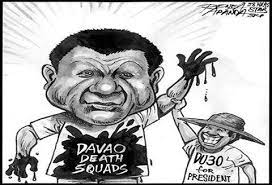
The Appeals Chamber of the International Criminal Court has rejected the Philippine government’s bid against the resumption of an investigation into alleged crimes against humanity in the Duterte administration’s “war on drugs.”
Sen. Robinhood “Robin” Padilla files a resolution seeking to defend former President Rodrigo Duterte from investigation or prosecution by the International Criminal Court.
In Senate Resolution 488, Padilla inisted the Philippines has a “functioning and independent” judicial system.
Padilla’s resolution also echoed Duterte’s defense of his administration’s bloody “war on drugs” that the narcotics problem “is an existential threat to the country’s social fabric.”
.
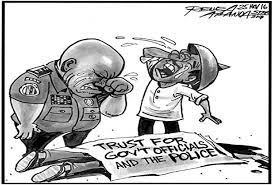
President Ferdinand “Bongbong” Marcos Jr. mainatains that the International Criminal Court would violate the country’s sovereignty if it continues with its probe into former President Rodrigo Duterte’s war on drugs.
In a press conference after the homecoming of Philippine Military Academy alumni Saturday morning. Marcos says the ICC investigation will be an “intrusion into our internal matters and they are a threat to our sovereignty.”
The Philippines is asking the Pre-Trial Chamber of the International Criminal Court to deny a request by the Office of the Prosecutor to resume its investigation into alleged crimes against humanity committed in the Philippines while it was a member of the ICC, including the early years of the “war on drugs.”
According to the Office of the Solicitor General, the Philippines argues that the alleged crimes that happened are not “crimes against humanity”, that the alleged crimes are already being investigated and that these state-level investigations should take precedence over investigations by the ICC.
Solicitor General Menardo Guevarra says President Ferdinand Marcos Jr.’s decision to not rejoin the International Criminal Court is his prerogative.
“I suppose the president’s primary consideration is always the best interests of our country, with utmost regard for our national sovereignty,” he says.
Marcos’ statement is a big blow to families of “War on Drugs” victims who are calling for justice for their slain loved ones, despite the president’s initial statement when he was elected on putting “importance of ensuring high-level of accountability in terms of human rights [violations].”
The Philippines will not rejoin the International Criminal Court, which it left in March 2019 over an inquiry into alleged extrajudicial killings in the Duterte administration’s “War on Drugs”, President Ferdinand Marcos Jr. says. — via The STAR/Alexis Romero
Mga Manananggol laban sa Extrajudicial Killings (Manlaban sa EJK) says President Ferdinand Marcos Jr. should cooperate with the International Criminal Court if he aims to achieve “high level of accountability” in human rights.
Requesting to resume investigation into Duterte admin’s “war on drugs,” Karim Khan, International Criminal Court prosecutor, concludes that Philippine government “has not demonstrated that it has investigated” the crimes.
ICC Prosecutor Khan also argues that the info that Philippine government submitted is insufficient and that the drug war cases only led to “non-penal initiatives and proceedings” without criminal prosecution.
Free Legal Assistance Group urges the International Criminal Court to continue its investigation on the so-called war on drugs in the Philippines.
The lawyers’ group points out that the cited investigation merely relied on documents provided by the Philippine National Police and only covered a small fraction of killings under the bloody “war on drugs” by the Duterte administration.
“The DOJ ‘investigation’ adverted to in the Philippines’ deferral letter covers only a fraction of the killings or attempted killings which occurred within the scope of the ICC investigation,” the group says in a letter addressed to ICC Prosecutor Karim Ahmad Khan.
President Rodrigo Duterte will not cooperate with the International Criminal Court’s probe into the drug war, his lawyer says Thursday, insisting the tribunal does not have jurisdiction in the country.
Duterte “will not cooperate since first of all, the Philippines has left the Rome statute, so the ICC no longer has jurisdiction over the country,” chief presidential legal counsel Salvador Panelo tells local radio DZBB.
“The government will not let in any ICC member to collect information and evidence here in the Philippines, they will be barred entry.” — AFP
Lawyer Romel Bagares, lead counsel for Philippine Coalition for International Criminal Court, says Jude Sabio’s communication against President Rodrigo Duterte at the International Criminal Court was “largely irrelevant.”
“To begin with, his submission was largely irrelevant as it dealt with matters before Mr Duterte became president,” Bagares says.
“Also the OTP (Office of the Prosecutor) itself said in its Dec 5 report said it consulted open sources in its preliminary examination so it is not limited to him. But definitely it will buoy up the confidence of all the President’s men,” he adds.
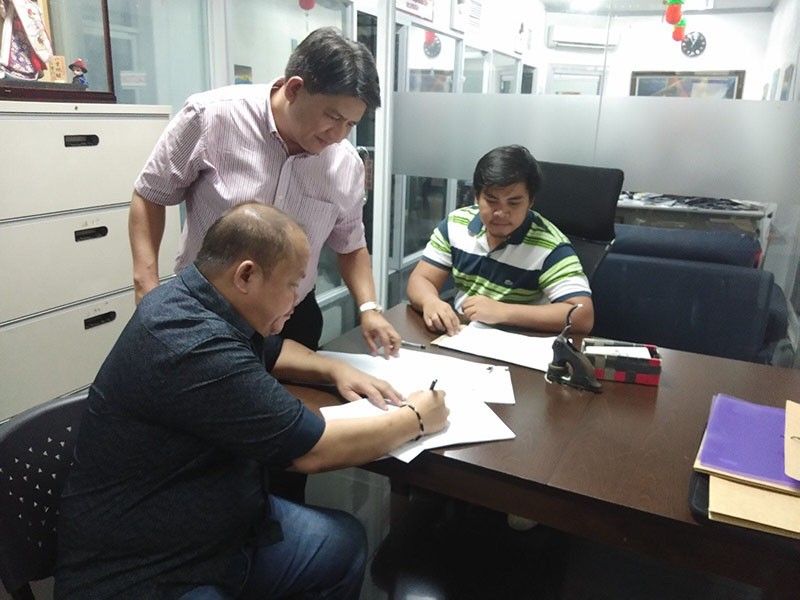
Lawyer Jude Sabio says he will withdraw his communication about extrajudicial killings filed before the International Criminal Court.
In a release, Sabio says “he did not approve what Trillanes and other LP personalities have resorted to aimed at besmirching the honor of the President.”
The lawyer, who was assisted by Larry Gadon in a Quezon City court, has signed and sworn an affidavit and statement about his withdrawal.
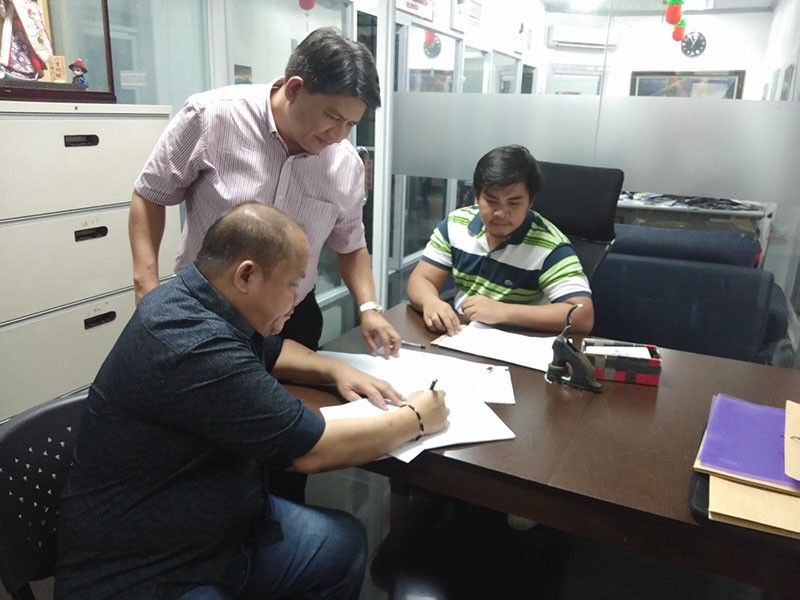
The Philippines’ withdrawal of its ratification of the Rome Statute, the treaty that created the International Criminal Court, does not mean the preliminary examination into allegations of extrajudicial killings in the government’s war on drugs has ended, the court’s prosecutor says.
In a post on social media, ICC prosecutor Fatou Bensouda says that under the statute, “and based on prior ICC judicial ruling in the situation in Burundi, the Court retains its jurisdiction over crimes committed during the time in which the State was party to the Statute and may exercise this jurisdiction even after the withdrawal becomes effective.”
The Palace has argued that the Philippines, which has nominated judges to the ICC, has never been a party to the Statute of Rome, arguing that it should have been published in the Official Gazette or a newspaper like a regular law.
“My office’s independent and impartial preliminary examination into the situation in the Philippines continues,” Bensouda says.
Human Rights Watch clarifies that President Rodrigo Duterte can still face prosecution by the International Criminal Court despite Malacañang arguing otherwise by claiming that the Rome Statute, the treaty that created the ICC, was not published in the government’s official publication.
READ: Publication not among usual requirements for treaties, agreements
“Even though the Philippines is no longer a party to the court’s Rome Statute, the ICC can still try crimes committed while the Philippines was a member – from November 1, 2011 until March 16, 2019,” Param-Preet Singh, associate director of HRW’s International Justice Program, says.
“Duterte has claimed that the Philippine justice system can deliver justice, but the conviction of three police in a single case to date, against a backdrop of up to 27,000 dead, according to a recent United Nations estimate, tells a very different story.”
Presidential spokesperson Salvador Panelo also stressed that under the Rome Statute, the ICC could only proceed with a probe if it has conducted a preliminary investigation.
“Duterte may think that his country’s withdrawal from the ICC is a show of strength. But on the contrary: his bald-faced effort to protect himself from the court’s reach looks more like an act of desperation for a man who appears deeply implicated in alleged crimes against humanity,” Singh says.
The Commission on Human Rights says the “best way to move forward” amid the looming unilateral withdrawal of the Philippines to the International Criminal Court is to cooperate with the tribunal’s preliminary examination “and demonstrate its commitment in ending impunity, rather than blocking avenues in seeking justice.”
It also urges the Duterte administration to reconsider its withdrawal from the Rome Statute as a stronger sign of its dedication to the rule of law and human rights.
The Commission on Human Rights says it continues to view the unilateral withdrawal of the Philippines from the International Criminal Court as a reversal of the country’s commitment to international treaty obligations, particularly in ending impunity.
“In the end, it is the Filipino people who is bound to lose when they no longer have the recourse in times when local justice systems fail in protecting them,” CHR spokesperson Jacqueline de Guia says in a statement.
“It is then impunity that wins as a consequence of withdrawal.”
The Office of the Prosecutor of the International Criminal Court releases a report on its preliminary examination on the Philippines. It says it is continuing its assessment to determine whether there is a reasonable basis to believe that the court has subject-matter jurisdiction to hear allegations that President Rodrigo Duterte and other senior government officials promoted and encouraged the killing of suspected drug users and dealers.
The report was released amid Duterte’s latest pronouncement of a harsher war on drugs.
Duterte, speaking at the 44th Philippine Business Conference and Expo, questions the credibility of the International Criminal Court anew. “Do not drag me to the ICC. I will not submit,” he also says. The ICC prosecutor has opened a preliminary examination–not a preliminary investigation– into allegations of violations under the government’s crackdown against illegal drugs. The purpose of a preliminary examination is to determine whether the ICC has jurisdiction over the crimes alleged.
The Supreme Court resumes oral arguments on the consolidated petitions challenging the country’s withdrawal of its ratification of the Rome Statute and its withdrawal from the International Criminal Court.
Solicitor General Jose Calida, representing the government officials named as respondents in the case, is set to argue for the defense today.
According to the Supreme Court Public Information Office, Acting Chief Justice Antonio Carpio is presiding over the arguments.
Chief Justice Teresita Leonardo-De Castro, who retires Wednesday, and Associate Justice Estela Perlas-Bernabe are not taking part in the arguments and will not vote.
Associate Justices Lucas Bersamin and Alexander Gesmundo are on official business leave and Associate Justice Jose Reyes Jr. is on wellness leave.
Families of victims of extrajudicial killings have filed a complaint against President Rodrigo Duterte at the International Criminal Court, The STAR’s Marc Jayson Cayabyab reports.
The National Union of People’s Lawyers and church-based and sectoral coalition Rise Up assisted in the filing, the first to be done by victims’ families themselves.
The first, actually a communication and not a complaint, was filed by Sen. Antonio Trillanes IV, Rep. Gary Alejano (Magdalo) and lawyer Jude Sabio in 2017.
The Philippines has already announced its withdrawal from the Rome Statute, the treaty that created the ICC.
The Supreme Court is hearing petitions blocking the withdrawal as unconsitutional without Senate concurrence.
The 1987 Constitution only mentions the need for Senate concurrence in the ratification f treaties.
The Supreme Court moves the oral arguments on petitions challenging the executive department’s withdrawal from the International Criminal Court to August 28 from August 14.
The SC Public Information Office, in its twitter account, adds that a full resolution will be issued by the high tribunal on Tuesday.
“Parties are being informed,” it adds.
The oral arguments cover consolidated petitions from the minority senators and the Philippine Coalition for the International Criminal Court led by former Commission on Human Rights chair Loretta Rosales.
The Supreme Court, voting 10-2, junks Sen. Leila de Lima’s plea to be allowed to personally argue her fellow minority senators’ petition challenging the executive department’s withdrawal of membership from the International Criminal Court.
In the 17-page petition filed last May, the opposition lawmakers cited Article VII Section 21 of the 1987 Constitution which states that “entering into treaty or international agreement requires participation of Congress, that is, through concurrence of at least two-thirds of all the members of the Senate.”
Although Senate concurrence is needed in the ratification of treaties, the Palace has argued that withdrawing from them is within the president’s prerogative.
The SC is set to tackle the consolidated petitions on the withdrawal of membership on August 14 in an oral argument.
The executive department’s withdrawal of the Philippines’ membership in the International Criminal Court faces another challenge at the Supreme Court.
The Philippine Coalition for the International Criminal Court, chaired by Etta Rosales, files a 51-page petition urging the SC to declare as void the Philippine Notice of Withdrawal from the ICC, due to lack of parliamentary approval from the Senate.
The PCICC, a non-government organization whose members “campaigned for the Philippines to become a State Party to the Rome Statue.”
This is the second petition assailing the Philippines’ withdrawal from the Rome Statute.
The Supreme Court orders the government to answer a petition filed by minority senators seeking the nullification of the country’s withdrawal of its ratification of the Rome Statute that established the International Criminal Court.
The executive branch has 10 days to answer the petition for certiorari and mandamus filed by minority senators led by Sen. Francis Pangilinan.
The 1987 Constitution requires the Senate’s concurrence in the ratification of treaties and the senators argue that the same should be needed when withdrawing ratification.
The SC set oral debates on the petition on July 24.
The International Criminal Court has spoken up about the President Rodrigo Duterte decision to withdraw from the Rome Statute, which governs the tribunal.
The ICC reminds Duterte that withdrawal will not influence the Philippines’ obligations to cooperate in a legal process.
Accusations of crimes against humanity against Duterte submitted to the ICC by lawyer Jude Sabio and Sen. Antontio Trillanes are undergoing an initial review, called a preliminary examination. This is the first step before a full-blown investigation is arranged by the United Nations-backed body.
Foreign Affairs Secretary Alan Peter Cayetano says the decision of the Philippines to pull out from the International Criminal Court was a “principled stand against those who politicize and weaponize human rights.”
“This campaign against President Duterte and the Philippines is being effectively carried out by elements who seek to undermine our government and who have successfully infiltrated the human rights community and weaponized human rights protection mechanisms to advance their goal of overthrowing our democratically installed government,” Cayetano said in a statement explaining the Philippines’ withdrawal from the international court.
With the delivery of the notice, the one-year countdown for the Philippines’ withdrawal from the ICC officially started on March 15, 2018. — Patricia Lourdes Viray
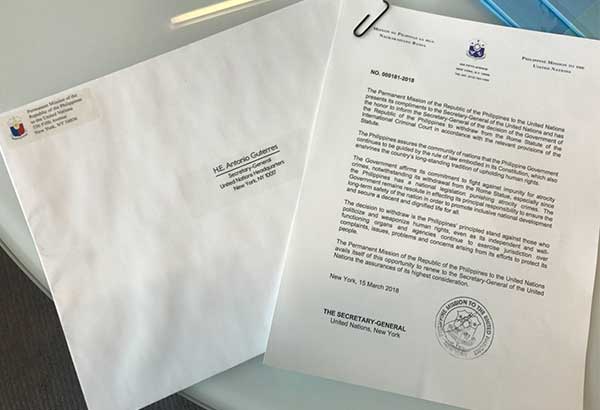
In the note conveying its withdrawal, the Philippines gave its assurance to the International community that it continues to be guided by the rule of law embodied in the Constitution and its long-standing tradition of upholding human rights.
Teodoro Locsin Jr., permanent ambassador to the United Nations, informs the United Nations secretary general’s office in New York of the Philippine government’s decision to exit from the Rome Statute, which was ratified seven years ago under then President Aquino.
“The decision to withdraw is the Philippines’ principled stand against those who politicize and weaponize human rights, even as its independent and well-functioning organs and agencies continue to exercise jurisdiction over complaints, issues, problems and concerns arising from its efforts to protect its people,” the letter reads.
The letter bears the stamp of Locsin’s office.
Commission on Human Rights chair Chito Gascon says the Philippine government is “grossly mistaken” in believing that the International Criminal Court does not have jurisdiction over the country.
“What it must do is to show that it is willing and able to bring all perpetrators of human rights violations to justice,” Gascon said.
Ifugao Rep. Teddy Baguilat, on the other hand, says the decision of President Rodrigo Duterte to withdraw from the Rome Statute was “obviously ill-advised.”
Baguilat pointed out that the withdrawal can take effect only a year after notifying the ICC.
“I hope Presidential spokesman Harry Roque, who pushed for the ratification of the Rome treaty that was ratified under the administration of former President Benigno Simeon Aquino III, can provide better advice to the president,” Baguilat said.
Sen. Antonio Trillanes IV says Duterte has “practically admitted that he is guilty of the allegations against him.”
Withdrawal from the international court would not have a legal effect as the cases have already been filed.
“But let me backtrack a bit. First, he said that he is willing to be jailed for what he has done. Then he said that the ICC has no jurisdiction and that he has not committed to any crime against humanity,” Trillanes said.
Duterte is well aware that there is no way out for him in the ICC and that this is merely a political move, the senator said. — Patricia Lourdes Viray
Human rights watchdogs say that the Philippines cannot avoid its obligations by withdrawing from the Rome Statute of the International Criminal Court.
“The Philippines’ intention to walk away from the International Criminal Court is unfortunate, but it doesn’t shut the door on the prosecutor’s scrutiny of the government’s horrendous track record of grave abuses. Those responsible for ICC crimes committed in the Philippines while the country is still a member could find themselves facing justice in The Hague,” Human Rights Watch associate director Param-Preet Singh said.
Amnesty International, meanwhile, said that withdrawal from the Rome Statute would only affect the temporal jurisdiction of the Court.
“Crucially, withdrawal from the Rome Statute does not extinguish the Philippine government’s obligations to put an end to human rights violations, and to provide measures for accountability for any crimes committed,” Amnesty International said.
President Rodrigo Duterte has announced the “the withdrawal of [the Philippines]’ of the Rome Statute.”
He says the Philippines is withdrawing from the treaty that it ratified in 2011 “given the baseless, unprecedented and outrageous attacks on my person as well as against my administration, engineered by officials of the United Nations as well as the attempt of by the International Criminal Court special proescutor to place my person within the jurisdiction of the International Criminal Court, in violation of due process and the presumption of inoccence guaranteed by the Philippine Constitution and recognized no less by the Rome Statute.”
ICC special prosecutor Fatou Bensouda announced in February that her office will conduct a preliminary examination — not an investigation — to determine whether the ICC has jurisdiction over alleged crimes against humanity that the Duterte administration has been accused of.
The Palace was quick to point out then that the examination was not the same as an investigation. Bensouda’s office has yet to determine whether it does have jurisdiciton.
President Rodrigo Duterte has announced the “the withdrawal of [the Philippines]’ of the Rome Statute.”
He says the Philippines is withdrawing from the treaty that it ratified in 2011 “given the baseless, unprecedented and outrageous attacks on my person as well as against my administration, engineered by officials of the United Nations as well as the attempt of by the International Criminal Court special proescutor to place my person within the jurisdiction of the International Criminal Court, in violation of due process and the presumption of inoccence guaranteed by the Philippine Constitution and recognized no less by the Rome Statute.”
ICC special prosecutor Fatou Bensouda announced in February that her office will conduct a preliminary examination — not an investigation — to determine whether the ICC has jurisdiction over alleged crimes against humanity that the Duterte administration has been accused of.
The Palace was quick to point out then that the examination was not the same as an investigation. Bensouda’s office has yet to determine whether it does have jurisdiciton.
President Rodrigo Duterte says the controversial drug war will continue until the last day of his term, with or without a communication filed at the International Criminal Court.
The ICC recently announced that it has begun processing the accusations against Duterte and his campaign against illegal drugs, which has led to the killing of thousands of people since he assumed power in June 2016. — Photo of the ICC building by AP/Peter Dejong
 Ads by: Memento Maxima Digital Marketing
Ads by: Memento Maxima Digital Marketing
@[email protected]
SPACE RESERVE FOR ADVERTISTMENT

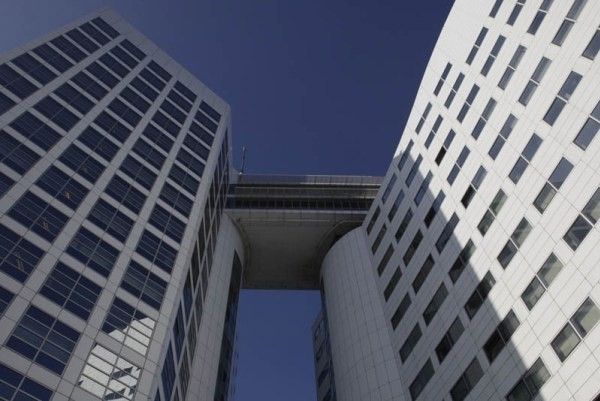
 Memento Maxima Digital Marketing
Memento Maxima Digital Marketing






